Film Review: Battle Royale (2000)
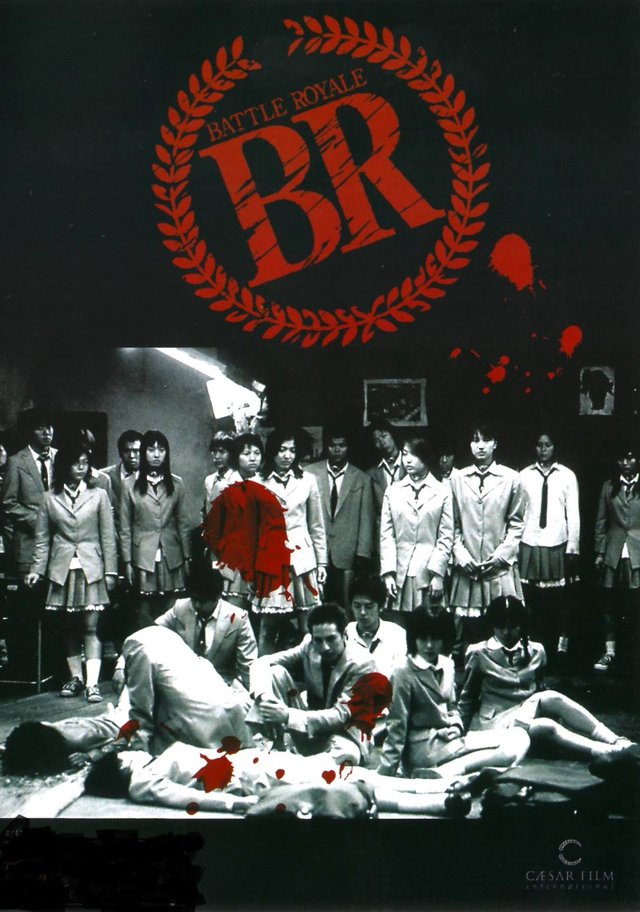
Review
Battle Royale is a Japanese action/drama film that achieved something of a cult status due to its interesting premise and execution. Perhaps first glimpses of this chaotic film came from the intro song from the series Japan-O-Rama, hosted by Jonathan Ross, the clips from the film inadvertently planting the subliminal seeds for curiosity to feed off of. The show was dedicated to investigating and enjoying Japanese culture, and the film was released in 2000, two year before the aforementioned series.
The film was directed by the late filmmaker, Kinji Fukasaku. The film would be his final full-length effort before his passing, aside from a small directorial role in the awful sequel that followed. But the film was actually the first Japanese film that I had ever seen, and far from being nestled alongside hard to obtain underground titles, Battle Royale sat proudly amongst top titles in the Netflix library, although I fear audiences may have missed out on their chance to watch it on the streaming service.
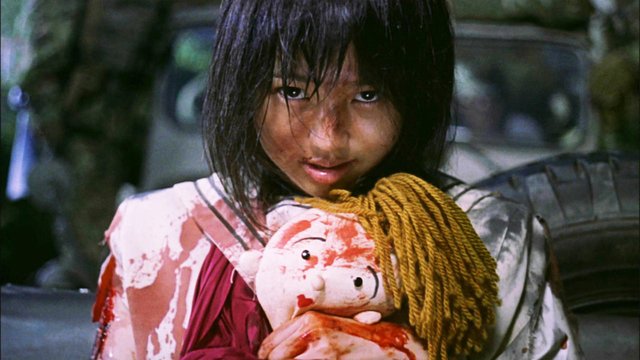
The film focuses on a fictitious period in Japan where the education system is failing and students are becoming more rebellious and harder to guide and control. As a deterrent and attempt at separating the wheat from the chaff, the government passes the Battle Royale Act, an over the top law that randomly selects a high school class to be taken to a deserted island and forced to battle to the death, the last student standing earning his/her release back into normal society.
Shuya Nanahara is the protagonist of the tail and is, unfortunately, part of the class that is selected to go to the island. Once there, the students are given their instructions by one of their teachers, played by famous Japanese actor/comedian/director, Takeshi Kitano. The students are each outfitted with a collar, which keeps track of their location on the island, and also self-destructs if the students tamper with it, if they find themselves on a red zone area on the island, or if they're alive when the time of the game has elapsed. They are also provided with the necessary tools for survival. Each student is given a map, compass, torch, food, water, and a randomly selected weapon. While some will be lucky to receive guns, knives or grenades, others must make do with less than lethal tools such as bullhorns, bulletproof vests or GPS devices to name a few. To make things a little more interesting, two more competitors are added to the game, one being a survivor from a previous game, the other being a willing participant who just enjoys mayhem and murder.
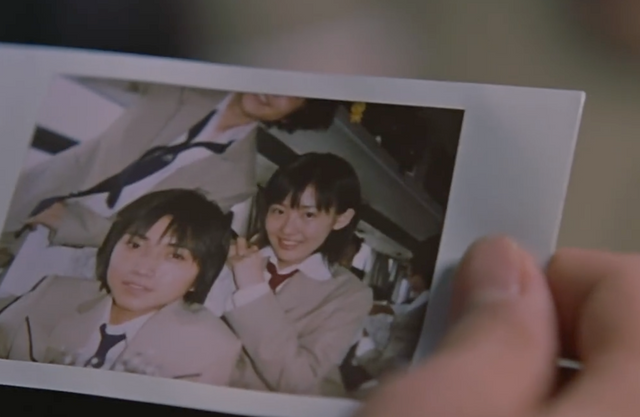
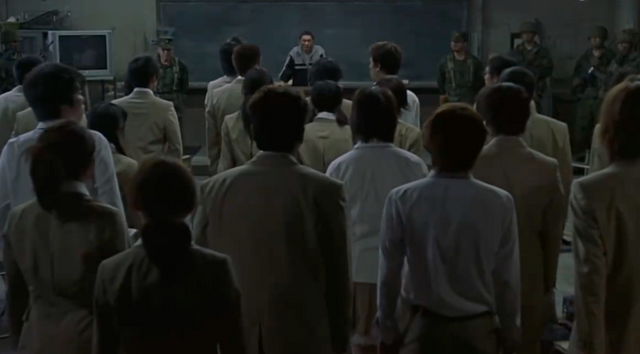
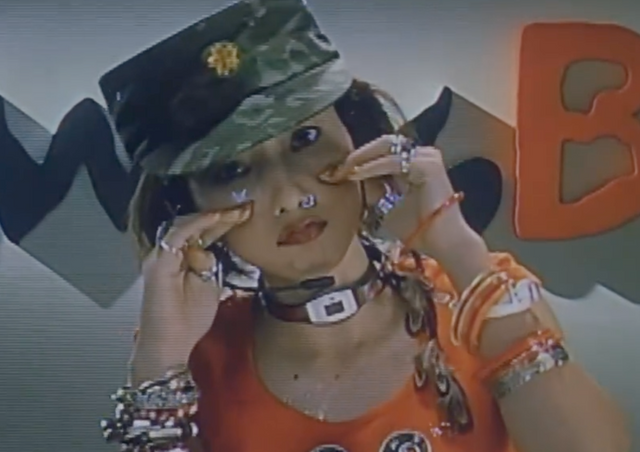
Once cast out into the island, the various students must quickly manage their emotions and decide whether to survive or die. The truly fascinating aspect of the film comes from seeing how exactly this plays out, indeed how each student adapts to these strenuous circumstances. As you can imagine, some are driven mad by the present landscape that just does not feel like it lends itself to reality, while others take to the game like a fish to water. While some look for the refuge found within co-operating with others in the hope of rescue or overcoming their captors, others decide to opt-out of the game completely.
The film entertains with what feels like relentless action and madness from start to finish, allowing viewers to compose themselves at the odd period of calm, in which the characters plot their next moves or simply reminisce about simpler times that were under appreciated given the present reality. While Nanahara is the main character, the film does well to show the struggles of the other students, each bringing their unique personalities to the table and doing what they can to cope and survive their current situation.
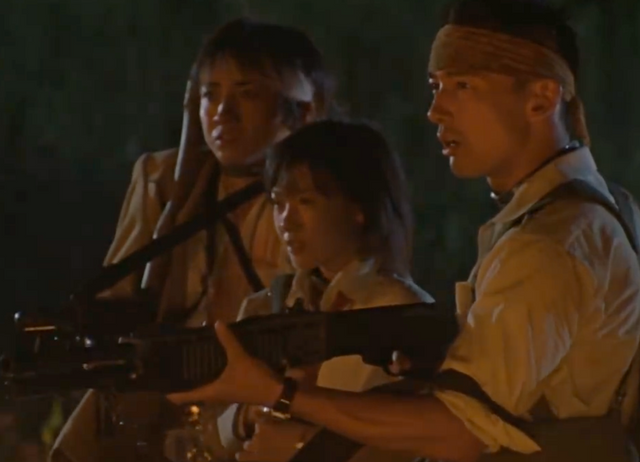
I felt the film was tremendously entertaining, but also massively provoking, asking of the audience many 'what if' questions that force reflection upon the circumstances that appear normal to us, those so easily shaken by events beyond our control. How would we act in similar situations? Would it be right to kill for the sake of survival and would we be successful in attempts to fight off our strong desires to live? Is suicide justified in circumstances that force us to act contrary to our selves, thus preserving our integrity? Or do moral considerations fall away entirely once we are free to act with impunity? These are questions that I felt the film posed in a way that was exciting and exhilarating in its absurdity.
Some might say that this is merely a Japanese attempt at Hunger Games, but the film was shot 12 years before its release, and 8 years before the Hunger Games book, certainly securing its originality from the American attempt of a similar concept. I thought the film produced a satisfying balance between the violence and the moments of reflection and introspection amongst the characters. Some performances were incredibly impressive as characters managed to demonstrate qualities that were cold and calculating at times, to deeply chaotic and violent in others. No surprise that one of the actresses would go on to land the role of Gogo Yubari in Quentin Tarantino's Kill Bill: Volume 1 film, although he certainly had his pick of the litter given the number of strong supporting female actresses.
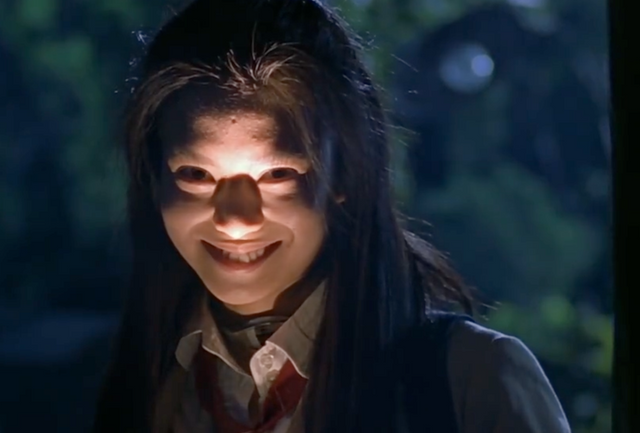
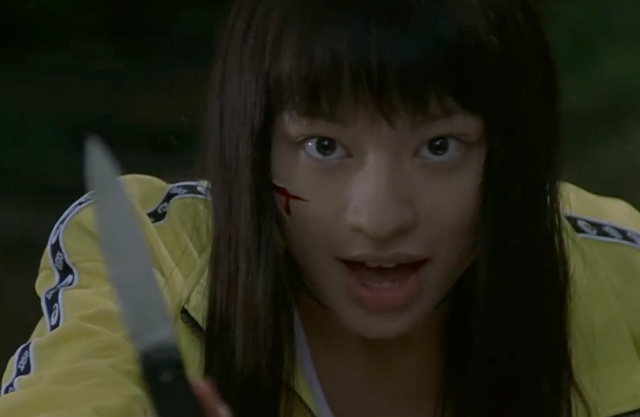
Good production contributed well to an evening out of the overall premise, but I did feel that film dragged on a little towards the end and possibly could've benefitted from shorter run time. But aside from this, Battle Royale still ranks as one of the most exciting Japanese films that I have watched to date and was only tarnished by a terrible sequel that produced none of the brilliance of the first. Looking for a classic to provide a good degree of entertainment, then look no further. Here's to happy viewing :).
This post was shared in the Curation Collective Discord community for curators, and upvoted and resteemed by the @c-squared community account after manual review.
@c-squared runs a community witness. Please consider using one of your witness votes on us here
good